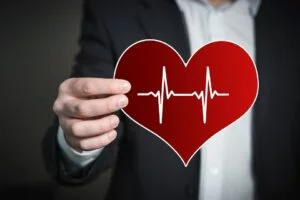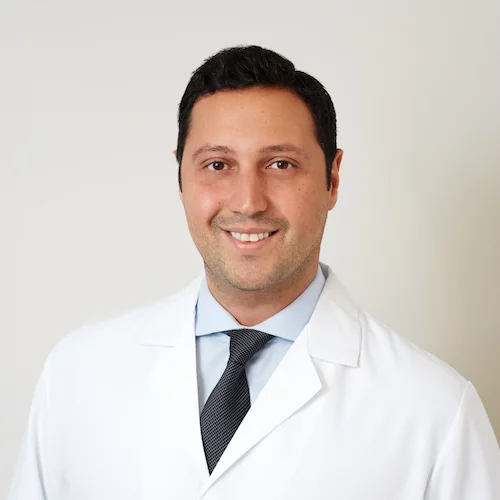A heart attack happens when there’s a blockage in the heart and tissue damage occurs due to lack of oxygen. Your heart is a strong muscle, built to pump blood through your body without pause. When a blood supply loss occurs, however, sections of this muscle start to die off. When this happens, you may suffer a heart attack. As soon as the warning signs of a heart attack appear, you must seek immediate medical care for help repairing the damage and restoring the function of your heart.
 Heart attacks are typically the result of years or decades of damage from unhealthy lifestyle choices, genetics, or environmental factors. Maintaining an unhealthy diet, using tobacco, and leaving serious health conditions such as uncontrolled diabetes can all accelerate the damage that leads to a heart attack.
Heart attacks are typically the result of years or decades of damage from unhealthy lifestyle choices, genetics, or environmental factors. Maintaining an unhealthy diet, using tobacco, and leaving serious health conditions such as uncontrolled diabetes can all accelerate the damage that leads to a heart attack.
For most people, intermittent squeezing pressure in the upper chest is the first warning sign of a heart attack. The pain may spread down the arms and torso or move upward toward the neck and jaw.
Other common heart attack warning signs include:
- Shortness of breath
- Cold sweat
- Nausea
- Dizziness
- Coughing
- Sense of impending doom
- Restlessness
These symptoms do not usually resolve from changing positions or taking any other at-home care measures. You must come in for an evaluation and treatment by a heart doc NYC to halt the damage to your heart and work toward a full recovery.
Risk factors for heart attacks are:
- Smoking
- Increased age
- Family History
- Uncontrolled Diabetes
- Uncontrolled Hypertension (High Blood Pressure)
- Uncontrolled Cholesterol and Lipid levels
- Sedentary Lifestyle and physical inactivity
- Obesity
Heart attacks are diagnosed with the clinical presentation of crushing chest pain that radiates to the left arm and neck, as well as taking a history of presenting illness. Diagnoses also include a 12 lead Electrocardiogram (EKG) which measures the electrical activity of the heart as well as certain blood tests that show damage to the heart. Findings will present with ST- Elevations in a specific assortment of leads that can help determine the location of arterial blockage.
Heart attacks can also be diagnosed by cardiac angiogram, which visually shows arterial blockage via CT technology.
When you arrive at the hospital with heart attack symptoms, your cardiologist will perform an electrocardiogram and blood tests to confirm this diagnosis. You may need to undergo surgery or a procedure called cardiac catheterization, or bypass surgery to have blockages removed by stenting or by bypassing the blockage.
Your surgeon may remove the blockages using angioplasty techniques or through the placement of a stent. Throughout the treatment process, your care team will monitor your vitals and ensure you are recovering at the expected rate. The thorough care you receive from your team of cardiologists and nurses helps to prevent further complications, including ventricular fibrillation, pericarditis and total heart failure.
Even after acquiring treatment for the heart attack, you will need continual monitoring by a skilled cardiologist. The amount and type of monitoring you will need depends on the level of heart damage sustained during the attack.
The monitoring helps ensure that your heart bounces back from the damage and resumes its normal, healthy functions. Your cardiologist will not only watch your blood pressure, heart rhythm, and cholesterol, but also keep a close eye on your blood sugar. By creating a solid monitoring plan, and sticking to it, you give yourself a better chance at preventing subsequent heart attacks in the future.
Controlling risk factors such as cholesterol, obesity, smoking, exercise, proper nutrition and diabetes can help minimize the risk of getting a heart attack.
A heart attack can lead to death if not treated properly and immediately upon the presentation of symptoms. The second-most common risk is chronic heart failure or a weak heart.
After the heart undergoes a sudden cardiac arrest like a heart attack, complications can occur like congestive heart failure. Where the pumping activity of the heart is weakened. Decreased cardiac output and ejection fraction are commonly seen abnormal pathological changes.
The best treatment outcomes for heart attacks occur within just 90 minutes of the attack symptoms starting. Therefore, if you notice signs of a heart attack, head to the nearest hospital immediately. Our clinic offers acute and follow-up care for heart patients across the greater Manhattan region. You can book an appointment with our team by navigating to our online scheduling form or calling us at 212-906-7798.

 Heart attacks are typically the result of years or decades of damage from unhealthy lifestyle choices, genetics, or environmental factors. Maintaining an unhealthy diet, using tobacco, and leaving serious health conditions such as uncontrolled diabetes can all accelerate the damage that leads to a heart attack.
Heart attacks are typically the result of years or decades of damage from unhealthy lifestyle choices, genetics, or environmental factors. Maintaining an unhealthy diet, using tobacco, and leaving serious health conditions such as uncontrolled diabetes can all accelerate the damage that leads to a heart attack.

